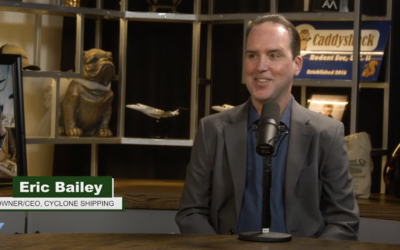If there had been a debate about climate change, it seems to have been quashed by recent events. Fires are overtaking the Pacific Northwest, Los Angeles reached a high of 120ºF this summer, and Denver recently saw a heat wave one day followed by a snowstorm the next. When it comes to battling climate change, the shipping industry is attempting to do their part with the introduction of emissions-free cargo shipping options. Is this the future of international shipping?
Everything Old Is New Again
While fueled cargo ships transport their goods to their destinations faster, they are also the source of a lot of pollution. According to phys.org, cargo ships produce nearly 3% of the world’s CO2 emissions. That may not seem like a lot—until you put it into perspective. The entire country of Germany delivers 3% of the world’s pollution, so the shipping industry and a decent-sized European country are at par when it comes to carbon dioxiede. That’s not good.
And that’s why some in the shipping industry are looking to the past for future solutions.
The Oceanbird is a new contender to bring clean fuel back to the open waters. Featuring four 260-feet-high sails that will reduce emissions more than 90%, this liner can haul up to 7,000 cars. While not quite as fast as its fueled competition, the Oceanbird provides nearly emissions-free cargo shipping in a hybrid form. Primarily powered by sail, the ship is also outfitted with engines for maneuvering into and out of docks.
A Call for Emissions-free Cargo Shipping
In an open letter to the European Parliament, Generation Climate Europe beseeched the EU to include cargo shipping emissions in the 2030 emissions reductions charter. The EU is pushing to become the first carbon-neutral continent in the world as early as 2050, and as Generation Climate Europe points out, the global shipping industry is the only sector that has not received any regulation on the matter.
The International Maritime Organization (IMO) sees it differently.
Their strategy to reduce greenhouse gases includes slashing emissions at least 40% by 2030 with a goal of a 70% reduction by 2050. And IMO is the only organization that touches the entire industry, regardless of country. While their immediate plans don’t discuss emissions-free cargo shipping, they are requiring that all new ships be more energy efficient overall. And that’s certainly a good thing for the environment.
Volkswagen Leads the Charge
Sometimes, it just takes one or two frontrunners to change an industry. While IMO is setting regulations in motion, Oceanbird and Volkswagen are taking matters into their own hands.
With 2050 seemingly being the magic year, Volkswagen aims for carbon neutrality by midcentury. And that doesn’t just include their cars; it includes how they’re manufactured and shipped to their final destinations.
In 2020, the car company sent a shipment to North America on a liner that uses compressed natural gas instead of oil for fuel. With two such vessels now in use, they are delivering 25% lower carbon emissions, 30% lower nitrogen oxide emissions, 60% fewer fine particulates, and a whopping zero sulfur oxide emissions, as compared with the traditionally powered competition.
While that’s not quite emissions-free cargo shipping, it certainly shows the market that it can be done. We’ll call that a win.
Trust Cyclone Shipping for All Your Global Shipping Needs
Even if the industry is not yet ready to deliver emissions-free cargo shipping, it is making strides. And at Cyclone Shipping, we keep our fingers on the pulse of what’s happening in the industry so we’re always two steps ahead. If you have questions, we’re here for you as your trusted freight forwarder. Contact us to learn more.




